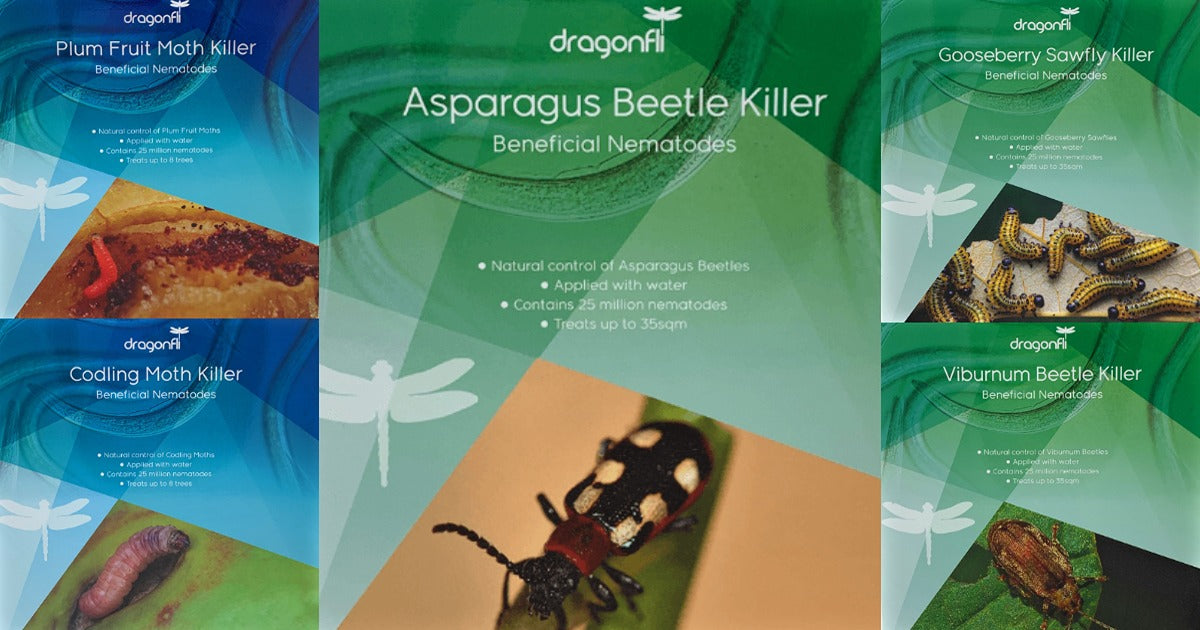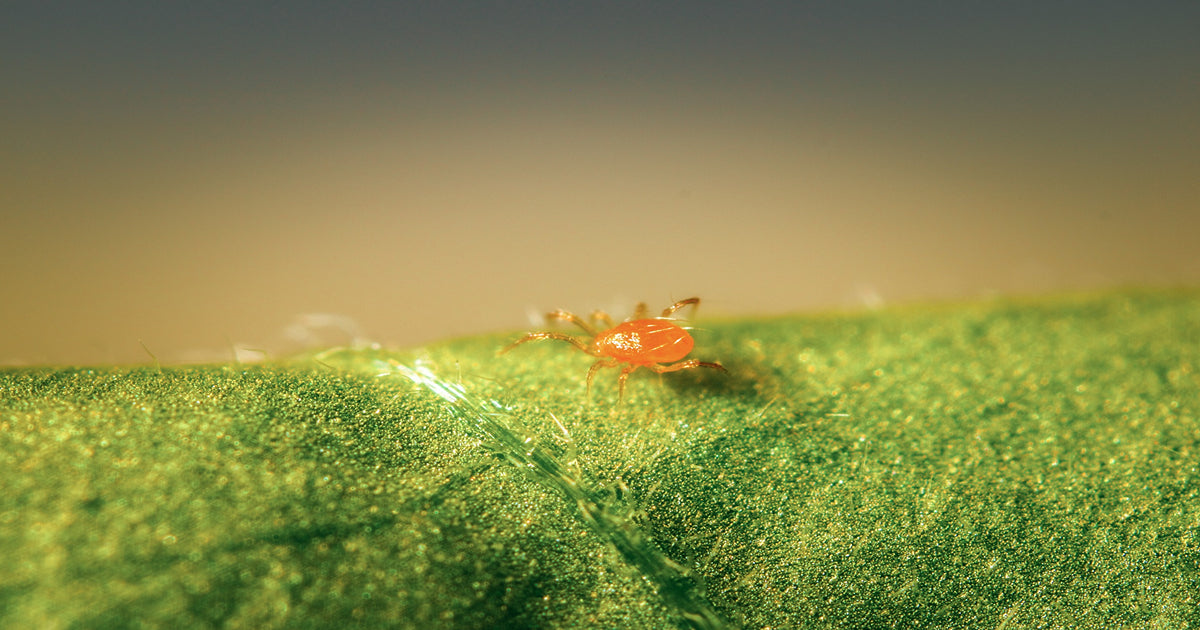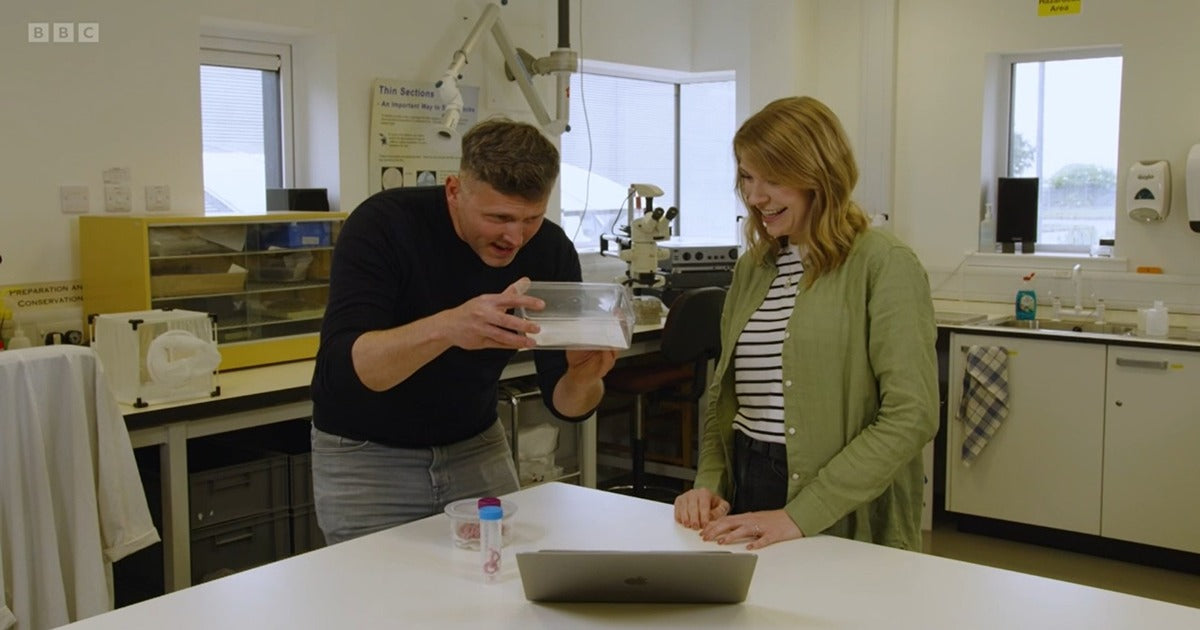
Release Of Five New Nematode Packs To Combat More Insect Pests Naturally
Dragonfli are unleashing a new army of biological control this spring. The move away from insecticides for garden pest control can now be accelerated with many new natural solutions available for 2021. Nematodes are already popular solutions for gardeners treating pests such as Vine Weevil, and this year many other insect pests can now be controlled with this form of natural pest control.
One of the new Dragonfli nematode products is the Asparagus Beetle Killer. The first generation of Asparagus beetle larvae appear on Asparagus plants during May and June and this is the time to apply Asparagus Beetle Killer nematodes. Unlike many other nematode applications, the nematodes should be sprayed directly onto the Asparagus beetle larvae on the plants. The nematodes then enter the larvae and kill them. This provides a new, safe and natural way to protect Asparagus plants from this damaging pest.

Our Asparagus Beetle Killer Nematodes will kill Asparagus Beetle larvae and provide a new natural protection against this pest.
There is a further release of new nematode products specifically to treat larvae of the following pests:

Our new nematode packs include Codling Moth Killer Nematodes. A natural protection is now available for your apples this summer!
A New Whitefly Predator Has Also Arrived
It is not only nematodes that are multiplying, we now also have available new predatory mites, and new ways of using them. One of these predatory mites, the Amblyseius andersoni, was seen as a useful early season control for Spider Mites, but recent trials have shown its use as a Whitefly egg predator. It is also active at quite low temperatures for a predatory mite, remaining active at temperatures as low as 6°C. This enables it to be introduced to plants when temperatures are too low for our standard whitefly control: Encarsia formosa.

Research has shown that our Amblyseius andersoni mites can be used in lower temperatures, and to combat Whitefly eggs as well as Spider mites.
Whitefly can build to quite high numbers in low temperatures before temperatures are high enough for the Encarsia to be active. If introducing our new Whitefly Killer Amblyseius andersoni in the spring, however, Whitefly development can be slowed down in time for the calvary to arrive in the form of Encarsia formosa when warmer conditions develop.
Comments (2 Responses)
Karon
Hi do you sell anything to kill rose sawfly please?
Thanks





04 November, 2025
Julian Ives
Hi Karon,
Many thanks for getting in touch.
I can confirm that our Gooseberry Sawfly Killer Nematodes will also be effective against Rose Sawfly (Arge ochropus) larvae.
Please just ensure to direct the nematode spray directly onto the present sawfly larvae and the nematodes will kill the respective pests upon making successful contact.
I hope this helps but if you need any further assistance please don’t hesitate to reach out again and we’d be more than happy to help.
Kind regards,
Julian Ives [Director, Dragonfli]